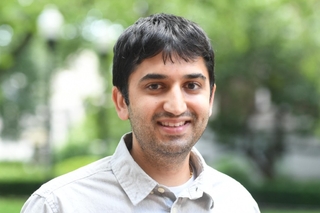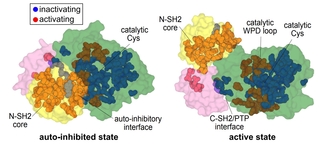Please join Yale Chemistry for a Silliman Seminar in biophysical chemistry with Prof. Neel Shah, Associate Professor of Chemistry, Columbia University.
Abstract: Most signaling proteins have evolved fine-tuned properties to ensure that cells can respond effectively to their environments. Signaling proteins typically engage in selective protein-protein interactions and their conformational dynamics are tightly regulated, ensuring that the processes they control are carried out with precision in response to appropriate cues. Many human diseases are caused by single amino acid changes in signaling proteins, which can dysregulate the activities of these proteins through a variety of molecular mechanisms. In this talk, I will describe our lab’s efforts to investigate the diverse mechanisms by which mutations can alter signaling protein structure and function, focusing on the disease-associated tyrosine phosphatase SHP2. Our lab has developed a complementary suite of methods to probe SHP2 sequence-structure-function relationships. These include: (1) deep mutational scanning to measure the basal activity of all possible SHP2 point mutations, (2) high-throughput peptide binding assays to determine how mutations alter the binding specificities of SHP2 regulatory domains, (3) proximity-labeling proteomics to map mutation-dependent changes in SHP2 interactomes and localization, and (4) multiplexed single-cell RNAseq to examine how SHP2 mutations remodel gene expression profiles. These methods are revealing unexpected mechanisms by which perturbations to protein structure, dynamics, and molecular recognition drive aberrant cell signaling.
More information on Prof. Shah’s research can be found here: Shah Lab
Hosted by Prof. Pat Loria.
Sponsored by the Mrs. Hepsa Ely Silliman Memorial Fund.

